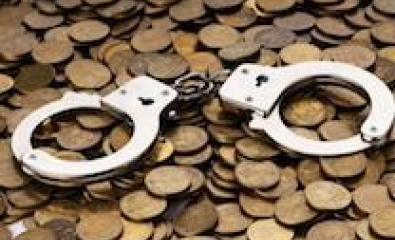
2017 Legislative Priority: End Jail Time for Unpaid Fines in Texas
Updated: March 27, 2017
Several great bills have been filed this session to improve how courts handle fines and court costs in criminal cases, so that people are able to resolve what they owe while avoiding the counterproductive cycle of debt, warrants and jail time that often results. Here are a few of the bills that Texas Appleseed strongly supports:
Senate Bill 1913 (Zaffirini) was drafted based on 2016 recommendations on court costs approved by the Texas Judicial Council – the policymaking body of the Texas courts chaired by Texas Supreme Court Chief Justice Nathan L. Hecht. The bill includes a number of changes to court procedure to promote fair treatment for low-income people, such as the following:
- Expanding community service options for people to work off their fines at churches, schools or job skills training classes;
- Requiring judges to determine ability to pay when imposing fines;
- Limiting arrest warrants to only those people who are willfully refusing to pay;
- Protecting people who voluntarily come to court to resolve their fines from being arrested; and
- Allowing qualified low-income people to legally drive to work even when they cannot pay their fines.
House Bill 3729 (White) contains many reforms to criminal court procedure to protect low-income individuals in fine-only cases. Similar to SB 1913, it would also expand community service options, require judges to ask about ability to pay when imposing fines, and limit arrest warrants to those who are willfully refusing to pay. In addition, it would:
- Limit the amount of time a person can be jailed for unpaid fines to three days; and
- Automatically waive court costs and reduce fines for low-income people who qualify.
House Bill 1125 (White) & Senate Bill 1335 (Hinojosa) would prohibit traffic tickets and other Class C fines from being converted into jail sentences. If passed, no one could be sentenced to jail in Texas for not paying fines or costs in fine-only cases — essentially ending debtors’ prisons in Texas.
Join us in advocating for an end to debtors’ prisons in Texas. Call your Texas state representative and Texas state senator today to tell them you support these bills! For their contact information, visit: http://www.fyi.legis.state.tx.us/Home.aspx.
Original Post: January 27, 2017
Too often, traffic tickets and fines in other low-level misdemeanor cases derail low-income Texans' lives, sending them into a cycle of debt that is difficult to escape. When people are unable to pay their fines and court costs, they face suspensions of their driver’s licenses and holds on their vehicle registrations, leading to more tickets and fines. They also face warrants for their arrest – thousands of Texans spend time in jail each year for offenses that should only be punished by a fine. Texas Appleseed supports legislation that would end the jailing of individuals for nonpayment of fines, as well as expand the options that are available to low-income individuals to resolve the fines and fees that they owe.
This issue falls under ourCriminal Justice Reformwork.
For a full list of our priorities, click here.